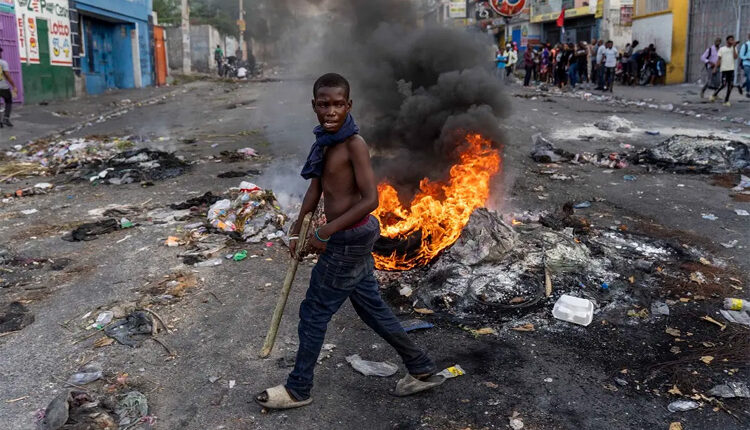The UN condemns increasing gang violence and criminal activity in Haiti that is undermining peace
The U.N. Security Council unanimously approved a resolution condemning “in the strongest terms” the increasing gang violence and criminal activity in Haiti that is undermining peace, stability and security in the country and the region.
Friday’s resolution expresses grave concern at illegal arms and ammunition flowing into Haiti and their link to the expanding territorial control by gangs and “the extreme levels of armed violence,” including sexual and gender-based violence, that lead to deteriorating security in the country.
The council extended the U.N. political mission in Haiti known as BINUH until July 15, 2025, with a mandate to support the advancement of “a Haitian-led, Haitian-owned political process towards the holding of free and fair legislative and presidential elections.”
The resolution, sponsored by the United States and Ecuador, reiterates the council’s support for a Kenyan-led multinational security force to help the Haitian National Police re-establish security. The initial contingent of 200 Kenyan police arrived in the capital Port-au-Prince on June 25.
Haiti asked for an international force to combat gangs in 2022, and U.N. Secretary-General António Guterres appealed for months for a country to lead the force before the Kenyans came forward.
The gangs have grown in power since the July 7, 2021, assassination of President Jovenel Moïse and are now estimated to control up to 80% of the capital. The surge in killings, rapes and kidnappings has led to a violent uprising by civilian vigilante groups.
The Security Council also welcomed the establishment of a transitional government led by Prime Minister Garry Conille, a former U.N. development specialist, who arrived in the country in early June. Last week, he told the council that the Kenyan police will be crucial to helping control the country’s gangs and moving toward democratic elections.
U.S. Ambassador Linda Thomas-Greenfield said after the resolution’s adoption that BINUH “plays a key role in supporting a democratic transition” in Haiti.
She said there is reason to be hopeful about the Kenyan-led police mission “and Haiti’s political outlook more broadly – but so much more needs to be done.”
Kenya has pledged 1,000 police and Thomas-Greenfield said they are working on deploying more of them. She said Benin participated in a meeting with Conille last week and announced they are preparing about 2,000 police to participate in the force.
Ecuador’s U.N. Ambassador José de la Gasca stressed the importance of regional solidarity in helping Haiti, Latin America and the Caribbean’s poorest country, overcome its many challenges. He said the unanimous adoption of the resolution “plays a crucial role in supporting Haiti’s democratic transition and restoring security in the country.”
Haiti’s U.N. Ambassador Antonio Rodrigue told the council the resolution “represents robust support on the part of the international community to the efforts deployed to help Haiti restore democratic institutions and to make progress in the political transition with the participation of all sectors of society.”
The extension of BINUH’s mandate “is a step in the right direction,” he said, “but a lot still remains to be done.”
Rodrigue said the arrival of the initial Kenyan contingents has given “great hope” to Haitians “that they will see an end to their suffering and the violence that they are facing.”
He reiterated appeals to the international community to support the Haitian National Police and the international police mission.


Comments are closed.